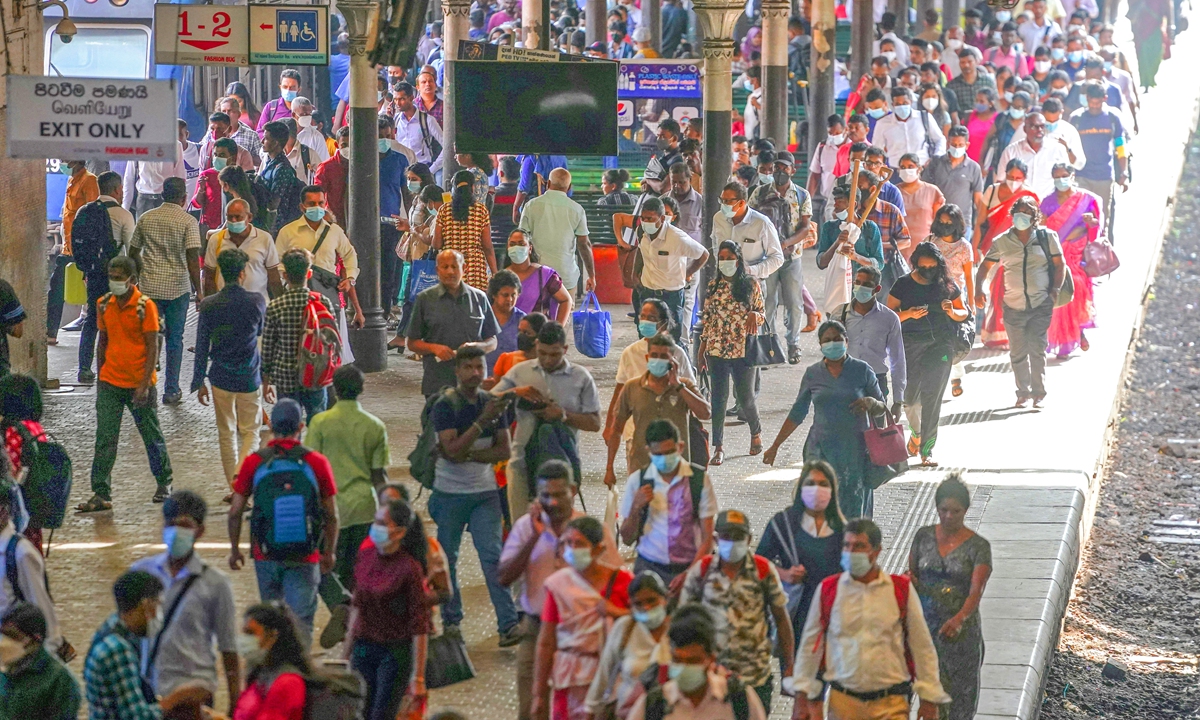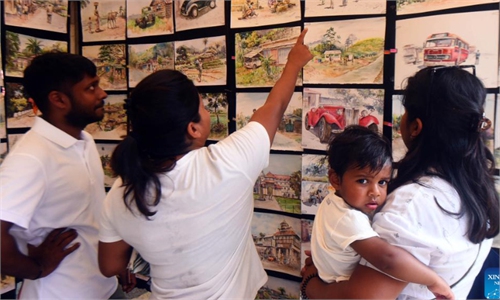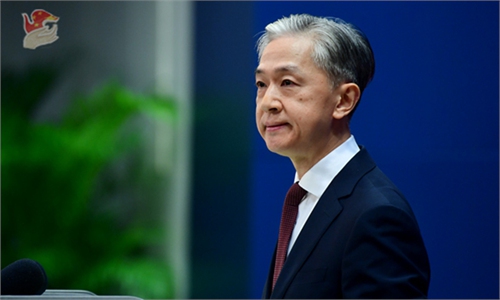China is not a Paris Club member and therefore why it should follow Paris Club-like policies: scholar
US, other Western countries urged to press private lenders to ease low-income nations’ fiscal difficulties

A train station in Colombo, Sri Lanka Photo: VCG
The Global Sovereign Debt Roundtable is set to be launched in Bengaluru on the sidelines of the G20 meeting of Finance Ministers and Central Bank Governors (FMCBG) which will be held on Friday and Saturday. The meeting will bring in key stakeholders to discuss issues that have been impeding a timely debt restructuring process.The roundtable will be co-chaired by the IMF, the World Bank, and India, following a virtual meeting last Friday, in which officials from China, India, Saudi Arabia, and G7 nation participated. Reuters reported that officials from developing countries that have requested debt treatments under the G20 common framework - Ethiopia, Zambia, and Ghana - as well as countries that have faced debit crisis, such as Sri Lanka, Suriname and Ecuador, also participated in the roundtable.
Rather than seeking a global resolution, some have tried to blame China. It is reported that the IMF is considering approving a loan to Sri Lanka, even without China's assurance of debt-restructuring support. A Bloomberg report cited sources close to the matter as saying that "the only prerequisite hindering the go-ahead is China's formal assurance." Prior to the roundtable, Paris Club members piled on pressure on China, calling it to "do the same in line with IMF program parameters as soon as possible," another Bloomberg report said.
China is not a Paris Club member and it therefore should not follow Paris Club-like policies. The financial framework with Paris Club creditors and framework with China are very different. China helps Sri Lanka in its own way to overcome its current economic crisis by bringing in investments to support an economic boost. And China's investment in Sri Lanka under the Belt and Road Initiative (BRI) has effectively promoted economic and social development in Sri Lanka.
The Paris Club or the IMF must not pressure a country in debt not to accept any other debt restructuring offers provided by a non-Paris Club bilateral creditor. And the Paris Club process may need to be re-examined in order to make it adaptable to non-Paris Club bilateral creditors such as China and India.
The Export-Import Bank of China has provided Sri Lanka with extension of debt due in 2022 and 2023, and China is willing to negotiate a medium- and long-term debt disposal plan with the country in a friendly manner, and do its best to promote Sri Lanka's debt sustainability, according to China's Foreign Ministry.
More Western responsibility required
It is clear that China is committed to helping developing countries ease their debt burden. China's loans are different and are an alternative to traditional financing schemes, which have no hidden agendas and support non-Western models of modernization.
Blaming China for debt crisis is just a distraction. In the case of Sri Lanka, it is also unfair to blame China for the economic crisis being experienced there. China is not the largest creditor to Sri Lanka.
Sri Lanka's Ambassador to China Palitha Kohona said that Sri Lanka's largest creditors are international financial organizations like the World Bank and the Asian Development Bank, and a substantial amount is also owed to other institutional investors from the West, for example the Wall Street.
The reality is that the IMF is serving the role of both player and judge. Just like the World Bank and the Asian Development Bank, the IMF is a multilateral lender itself. The multilateral development banks (MDBs) and private creditors hold the biggest share of developing countries' debt. However, a lack of measures to encourage their participation in debt restructuring is a major concern. The IMF must, at least explore the principle of comparable treatment among all the creditors including MDBs and private creditors.
The US and other Western countries should end the blame game and take more responsibility to pressure Western private lenders to ease loan repayment requirements for low-income countries to tackle their debt crisis.
The main reason for the debt issue in many developing countries including Sri Lanka is due to the government's unsustainable fiscal and current account deficits, which means that it has relied heavily on borrowing to finance governmental spending, at times taking out loans with particularly high interest rates.
Sri Lanka continues to face immense pressure from the rising cost of living, including from food and energy prices, due to Western sanctions on Russia, and the disruption of supply chains by both the pandemic and strengthening US dollar.
The US central bank's aggressive tightening of policy has made the US dollar the strongest it has been in the last 20 years. As the US dollar strengthens, it weakens the Sri Lankan currency and pushes up the price of imported food, fuel, and medicine and exports inflation to Sri Lanka, further worsening the situation.
Maya Majueran is currently serving as a director of Belt & Road Initiative Sri Lanka (BRISL), a Sri Lanka-based organization that specializes in BRI cooperation.
The opinions expressed are those of the writer(s) alone and do not necessarily reflect the position of the Global Times.



